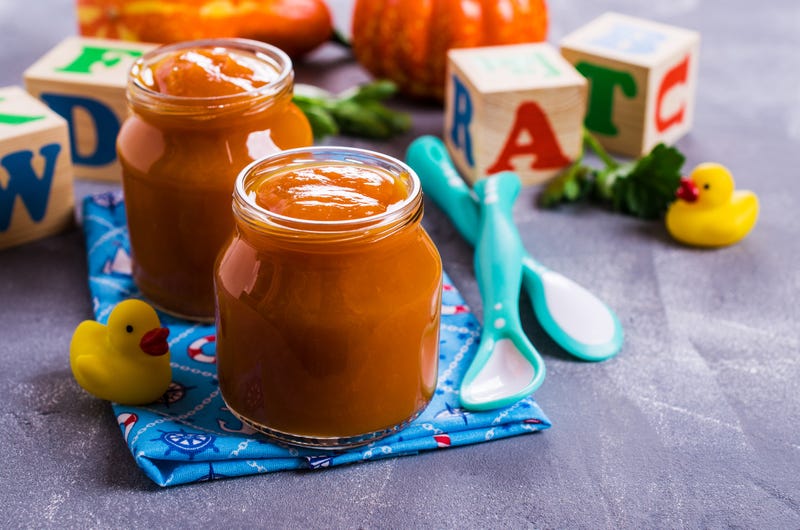
LANSING (WWJ) -- In an effort to protect children from toxic metals found in baby foods, Attorney General Dana Nessel is calling on the feds to take swift action.
Nessel, joining a multistate coalition of 22 attorneys general, is calling on the heads of the U.S. Food and Drug Administration (FDA) and Department of Agriculture (USDA) to eliminate the toxins from the baby food.
In a letter to FDA and USDA officials, key strategies were outlined, allowing them to take immediate and widespread action that would drive down the levels of dangerous toxic metals.
This is the latest action in response to the health hazards posed by lead, arsenic, cadmium and mercury found in baby foods -- other than formula --including cereals, purees and other products for babies and young children.
"The elevated levels of these toxic chemicals in baby food needs urgent action," Nessel said. "Right now, some of the most vulnerable of our population are facing unacceptable harm because manufacturers have been allowed to self-regulate the amount of lead and other toxic metals in their products. I stand with my colleagues in asking the FDA and the USDA to accelerate the timelines for implementation of the 'Closer to Zero' plan and step up its own actions to improve the safety of baby food. There is no time to waste."
The FDA has proposed limits on toxic metals in a variety of other products -- such as bottled water, juice and candy -- but Nessel said the agency has failed to adequately regulate baby food.
So far, according to the Attorneys General Office, the FDA has established only one action level for one type of toxic metal -- inorganic arsenic -- in one type of baby food product -- infant rice cereal.
This is all despite the FDA's conclusion years ago that babies’ and young children’s smaller bodies and metabolisms make them more vulnerable to the harmful neurological effects of these toxic metals.
As a result, United States baby food manufacturers are left to self-regulate the amounts of lead and other toxic metals in their products. And it remains up to the manufacturers to decide whether to test their products for these contaminants.
In April 2021, FDA announced the “Closer to Zero” plan, in which the agency committed to proposing “action levels” for lead in various baby foods by April 2022, inorganic arsenic in various baby foods by April 2024 and cadmium and mercury sometime after April 2024.
However, the coalition noted that the plan was already behind schedule, since the FDA failed to propose lead action levels by the April deadline.
The Attorneys General Office said this delay is both a public health concern and a matter of environmental justice, as low-income children and children of color are disproportionately impacted by lead through exposure to lead-based paint, lead in drinking water pipes and other sources.
"Lead in their food only exacerbates the existing inordinate and inequitable hazards these children face."
In their letter, the coalition urges the federal government to adopt interim measures recommended in the coalition’s October 2021 petition -- which urged the FDA to issue clear industry guidance for limiting toxic metals, such as:
• Propose interim limits for inorganic arsenic, lead, cadmium and mercury in relevant categories of infant and toddler foods
• Propose a lower limit for inorganic arsenic in infant rice cereal than that currently set forth in FDA guidance
• Provide guidance to all baby food manufacturers to test their finished products for toxic metals
Officials said the FDA denied the petition, but earlier this month, the coalition asked FDA to expeditiously reconsider its denial of that petition.


